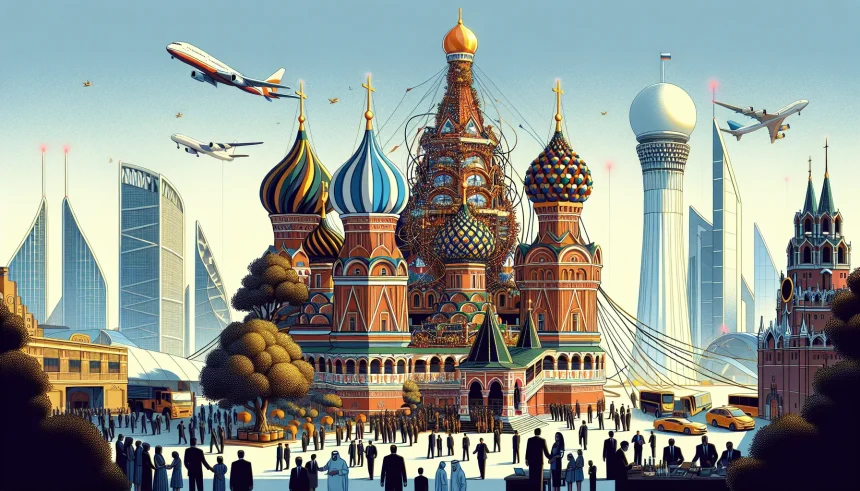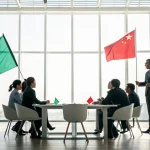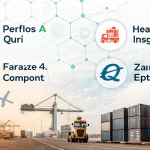India signaled a deeper push into regional Russia as External Affairs Minister S. Jaishankar opened new consulates in Yekaterinburg and Kazan on November 19, 2025. The moves came a day after he met President Vladimir Putin in Moscow to review preparations for the annual Leaders Summit. He also joined Shanghai Cooperation Organisation discussions during the visit. The message was clear: New Delhi plans to steady ties with Moscow while managing energy and security interests under sanctions pressure.
Why two new consulates, and why now
Jaishankar framed both cities as gateways for industry, technology, and trade. Yekaterinburg links to the Urals’ industrial belt. Kazan stands out for engineering, education, and manufacturing. The minister said the consulates will help firms, researchers, and students who need faster services outside Moscow and St. Petersburg.
“The strategic importance of both cities for industrial, technological, and trade cooperation” guided the decision, he said.
The timing matters. India is preparing for the Leaders Summit even as sanctions and oil debates heat up. By opening posts in Russia’s regions, New Delhi is betting on direct ties with local authorities and industry groups, not just federal channels.
People-to-people links and student needs
The minister drew attention to the scale of the Indian community in Russia’s regions. He highlighted a large number of students who will benefit from better access to consular help and outreach.
He noted “the large Indian diaspora, including over 30,000 students,” in these areas.
Consular demand often spikes during exam cycles, internships, travel disruptions, and health emergencies. Extra capacity close to campuses can shorten wait times and ease documentation hurdles.
- Faster visas and attestations for students and families.
- Local support for legal and medical issues.
- Industry visits and job fairs coordinated with universities.
Sanctions, oil, and the tightrope
India has faced scrutiny for buying Russian crude while Western sanctions target Moscow. New Delhi argues affordability and energy security. The minister’s remarks defended that stance while positioning the relationship as steady and pragmatic.
“India-Russia ties remain resilient despite Western sanctions on Russia and pressures on India over Russian crude oil purchases,” he said.
The line reflects a balancing act. India seeks stable supplies and discounts that cushion domestic inflation. At the same time, it keeps channels open with the West on finance, technology, and defense cooperation. The new consulates will likely support smaller exporters and mid-size firms looking for clarity on payments, compliance, and logistics.
What the Putin meeting signals
Jaishankar’s meeting with President Putin focused on preparing the Leaders Summit agenda. That suggests deliverables may center on energy, trade facilitation, and education ties. The trip also included SCO engagements, which add a security and regional coordination layer to the visit.
Officials often use such preparatory meetings to lock in timelines and troubleshoot sanctions-related snags. The expanded consular footprint can help translate summit outcomes into local projects, internships, and tech partnerships in the two cities.
Industry outlook and regional opportunities
Yekaterinburg offers manufacturing depth and access to metals and machinery clusters. Kazan’s universities and tech parks can match Indian interest in engineering and IT collaboration. The consulates could support pilot projects, faculty exchanges, and joint labs that align with both sides’ skills needs.
For small and mid-size enterprises, regional posts can reduce travel costs and speed up deal-making. Direct engagement with regional governments often helps projects move faster than capital-only channels.
What to watch next
All eyes will be on the summit schedule and any targets on trade volumes, energy payments, and student mobility. The SCO track may shape security and connectivity talks that affect supply chains.
Key signs of progress will include early business missions to the Urals and Tatarstan, student service metrics at the new posts, and announcements on education or research partnerships. If the consulates show quick wins, New Delhi may consider a broader regional outreach inside Russia.
The visit marked a step toward practical, local engagement under complex global conditions. The new consulates give Indian citizens and companies more tools on the ground. The next test will be the Leaders Summit, where both sides can turn intent into timelines, and timelines into results.







